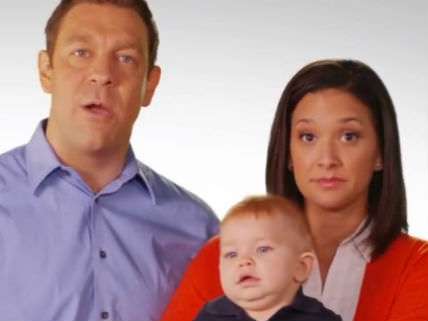Politicians' Drugs, in Order of Acceptability: Cocktails, Cannabis, Cocaine

Our three most recent presidents all admitted (some more forthrightly than others) that they had tried marijuana, and survey data suggest that something like half of all politicians (assuming they resemble the general population in this respect) have done so as well. But how do Americans feel about politicians for whom pot smoking is an ongoing pastime rather than a youthful indiscretion?
According to the latest Reason-Rupe Public Opinion Survey, most would not mind if they learned that a public official unwinds with a few puffs of cannabis in his spare time instead of a cocktail or two. Fifty-two percent of respondents said they would "still support" such a politician. Forty-three percent said they would not, however, and I suspect that is a lot higher than the percentage who would reject a candidate based on his after-work tippling.
Although some recent polls find majority support for legalizing marijuana, many Americans evidently still believe alcohol is morally superior. Their numbers seem to be shrinking, however. In a 2006 Pew Research Center survey, 50 percent of respondents said smoking pot is "morally wrong," compared to 45 percent who said it was either "morally acceptable" or "not a moral issue." This year Pew found those numbers had shifted substantially: Only 32 percent deemed marijuana consumption "morally wrong," while 62 percent did not find it morally troubling. Still, if you take the third or so who deem marijuana morally objectionable and add people who believe it is wrong for public officials to break the law (even when the law is irrational or unjust), you can see how two-fifths of Americans might abandon a pot-smoking politician.
As you might expect, younger people are more accepting of a politician's marijuana use: In the Reason-Rupe survey, 65 percent of respondents younger than 35 said it was no big deal, compared to 50 percent of 35-to-54-year-olds and 44 percent of respondents 55 or older. That pattern is similar to the age trend in support for legalizing marijuana, which was 49 percent overall in this poll but 56 percent in the under-35 group.
A cannabis-consuming candidate is in a much more favorable position than one who favors cocaine. A whopping 85 percent of respondents said they would "no longer support" a public official who "uses cocaine occasionally in his or her personal time." The gap between cocaine and cannabis on this score reflects cocaine's scarier reputation, which is reinforced by the fact that the number of Americans who have tried it is about one-third the number who have tried marijuana, based on data from the National Survey on Drug Use and Health. Once you allow for a bit of underreporting (which is likely in a survey asking about illegal behavior), it looks like most American adults born after World War II have smoked (or eaten) cannabis at some point. But even if you assume that an equal percentage of cocaine users lie in surveys, this drug is still distinctly a minority taste. People tend to view relatively exotic intoxicants as more frightening (and more condemnable) than familiar ones.
That tendency was not lost on Toronto Mayor Rob Ford and U.S. Rep. Trey Radel (R-Fla.), both of whom blamed their occasional cocaine use on their heavy drinking, figuring the public would be more inclined to forgive the latter than the former. An interesting question, given evolving public opinion, is how those scandals would have played out if the illegal drug had been marijuana rather than cocaine. Growing public support for legalizing marijuana seems to go hand in hand with growing understanding of marijuana's health and safety advantages over alcohol, although a stubborn (and aging) minority refuses even to consider the comparison. Would Ford or Radel have tried to offer excessive alcohol consumption as an excuse for consuming marijuana from time to time, or would they have worried that voters might prefer an occasional pot smoker to a habitual drunk?


Show Comments (17)